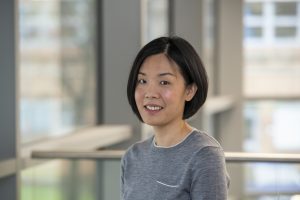Researchers from the Antibody and Vaccine Group based at the Centre for Cancer Immunology have found a way to improve cancer treatment using monoclonal antibodies.
Previous work from the Group has shown that monoclonal antibodies which stimulate the immune system are highly effective in preclinical cancer models.┬Ā However, these results have not resulted in success in human studies.┬Ā One of the critical reasons behind this, is a lack of understanding as to how these antibodies may bind to its target receptor.
In this study, published in Communications Biology , the Group describes the factors which control the ability of antibodies targeting CD27 to stimulate the immune system.

CD27 is a receptor on T cells, which stimulates a pathway that leads to more T cells being produced that fight cancer.
In the study, antibodies that bound further away from the cell membrane, and in between receptor complex were better at stimulating the immune system than those which bound nearer to the cell membrane or within the receptor complex.┬Ā Additionally, the stem of the Y-shaped antibody molecule can be altered so that it is able to cluster the receptor complex more effectively.
Southampton researchers believe this insight will provide the necessary guidance needed by the research community in developing better and more effective immunostimulatory antibodies against CD27.
Dr Sean Lim, led the research, funded by Cancer Research UK and the MRC, and said: ŌĆ£Antibodies that lift the brake of the immune system can stimulate it to kill cancer cells better, but response rates in patients are still low.┬Ā If we understand how to step on the accelerator as well, we may improve response rates. Learning the rules behind what makes a good CD27 accelerating antibody is an important step towards this.ė
ŌĆ£We now need to test these different engineered antibodies in different models to prior to moving forward to selecting the best candidate for future clinical trials.ŌĆØ
This work will be presented at the Keystone Symposium on ŌĆ£Antibodies as DrugsŌĆØ in April 2022, in Colorado by MRC-DTP PhD student Franziska Heckel.